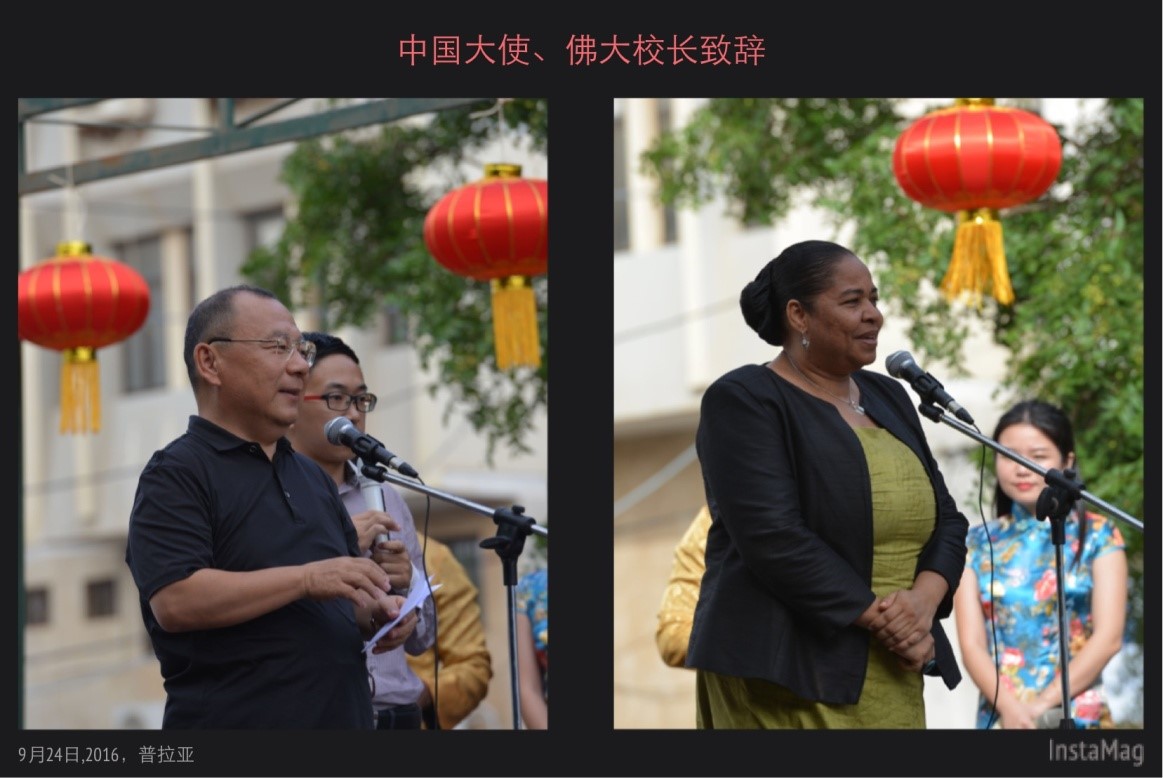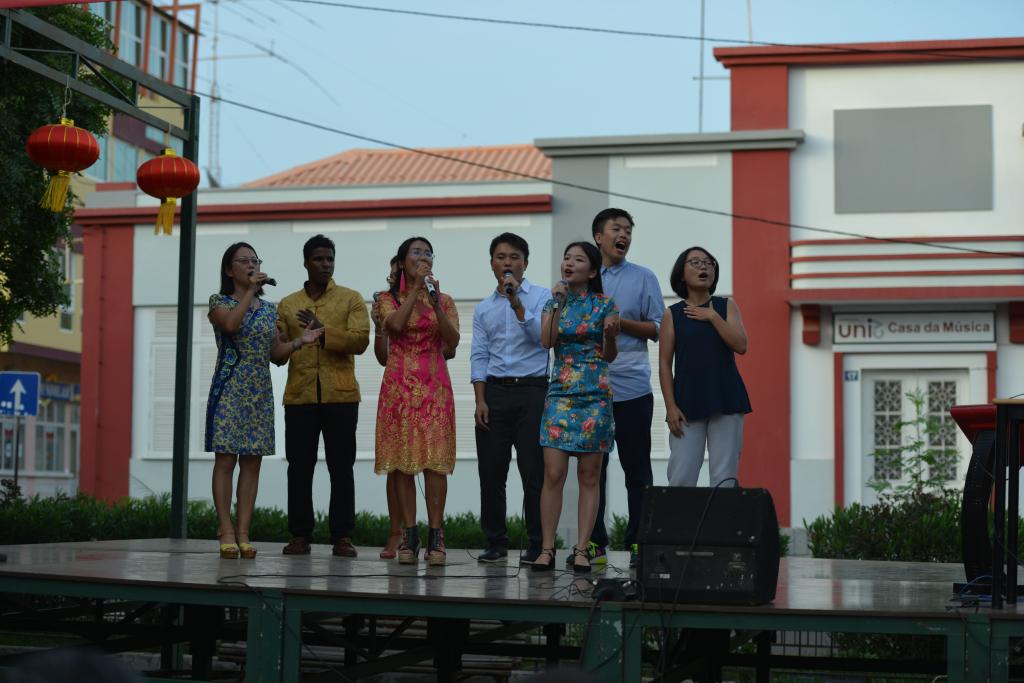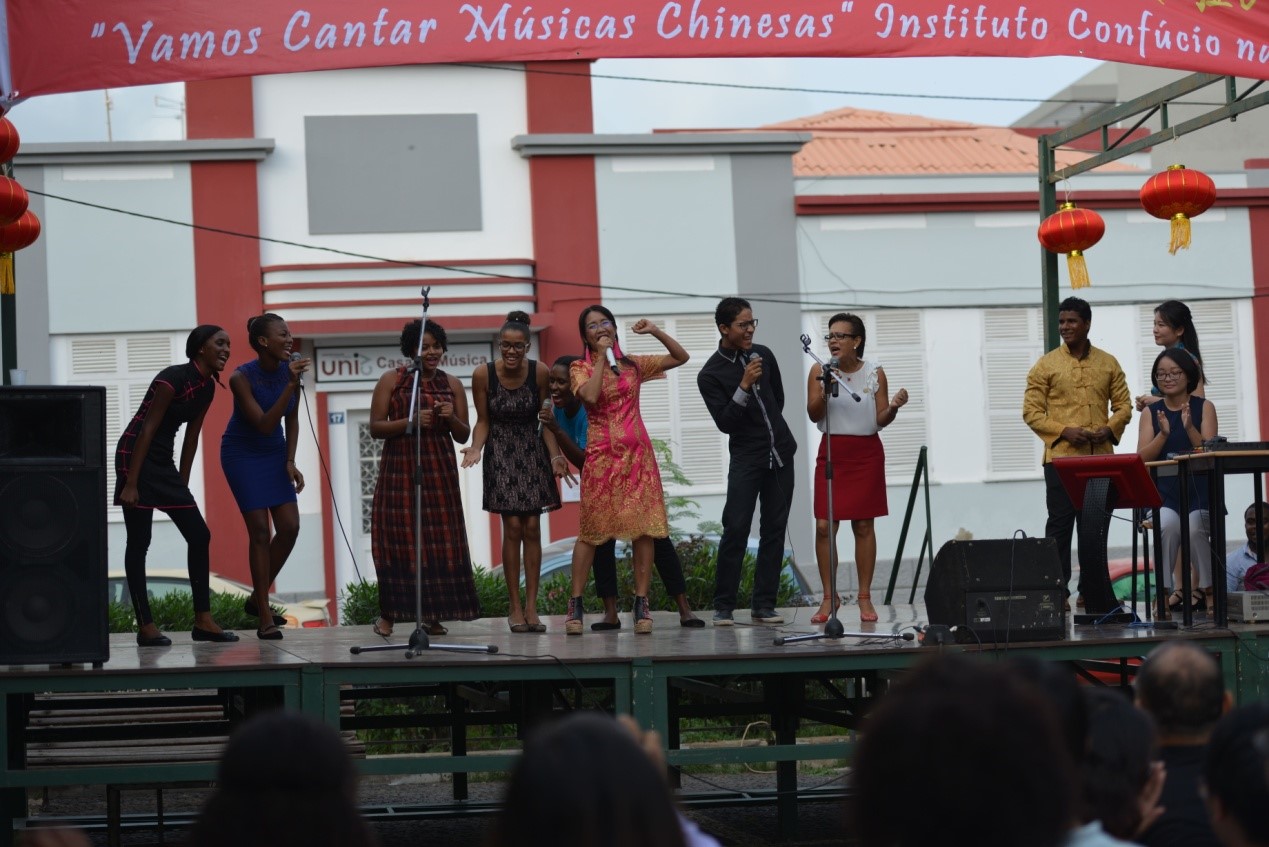On the afternoon of September 24th, the Confucius Institute at the University of Cape Verde held a karaoke cultural event themed: "Sing Chinese Songs Together" at the Sofia Plaza in Praia – the capital of Cape Verde. Teachers and students, together with local people and Chinese, sang Chinese songs. DU Xiaogong, Chinese Ambassador, and his wife BIAN Zhichun; Amy Linda, Dean of Confucius Institute of Foreign Affairs; Judith, President of University of Cape Verde; Antonio and Cardoso, the Vice Presidents; Jose, Director of the Verde-China Friendship Association and other leaders, attended the event. Chinese companies in Cape Verde, Chinese medical teams and local Chinese also gave support to this event.

Ambassador DU and President Judith gave speeches
Mr. Du reviewed the establishment of the Confucius Institute at the University of Cape Verde and highly praised the work team led by Chinese President ZHENG Qingjun. He stressed that the Confucius Institute at the University of Cape Verde has undoubtedly provided a new platform for China-Verde cultural exchanges and has become a cultural brand in Cape Verde. Each activity is pioneering and innovative, and learning Chinese through singing Chinese songs is a good method. Dean Linda said in a speech that learning Chinese is very difficult, but "there is no difficult things, as long as people work hard". We can learn Chinese not only by reading books in the classroom, but also singing songs. She expected more Cape Verdeans to enroll in the Confucius Institute to learn Chinese. Judith thanked the Confucius Institute for its achievements and contributions to the education and culture of Cape Verde, saying: "University of Cape Verde is honored to have the first Confucius Institute in Cape Verde. The outstanding performance of the Confucius Institute has helped the university to establish a good image.

Wonderful Performance
The opening program "Cape Verde, we come!" was performed by Chinese teacher SU Chun, foreign president and students of Confucius Institute. This was an original song, adding elements of Africa, and so resonated with local people. Subsequently, the students of the Confucius Institute came on the stage one by one and sang many familiar Chinese songs. Some students sang classical love songs such as Almost a Love Story, The Story of Small Town and The Moon Represents My Heart, others sang golden songs: Invisible Wings, Listening to Sea, Legend, Tulang, and so on. There were students who took the challenge and sang difficult songs, such as the Qinghai-Tibet Plateau, I Was A Little Bird, Not So Simple, and You Are A Song in My Heart.

Happy Moment
China's medical aid team also participated in the performance and sang many classical Chinese songs, showing different styles of Chinese doctors. Local Chinese are also actively involved in singing. Their wonderful performance won applause from the audience. Finally, all the staff of the Confucius Institute showed up. The event was concluded with the song Tomorrow Will Be Better.
The principals of the University of Cape Verde watched the whole performance in great spirits. "This is a well-designed music show, which proves that singing is an effective way to learn Chinese," Judith said in an interview, and expressed that University of Cape Verde would enhance cultural interaction with the Confucius Institute. Chinese president ZHENG Qingjun sighed after the event: "It is not an easy thing to sing Chinese songs in remote West Africa, but this activity fits in well with the characteristics of the national music of Cape Verde, to circulate language with music.
Singing Chinese songs is not just an entertainment activity, but also the transmission of culture and friendship, a good way to promote mutual understanding between the peoples of China and Cape Verde. It will have a profound impact on the cultural communication between the two countries.

